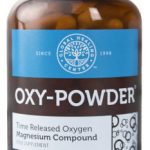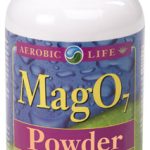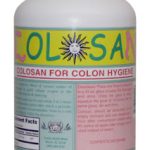Don’t doubt it; oxygen is an absolutely critical substance for humans. The odourless, colourless gas that accounts for a fifth of the air all around us (and is the third most abundant in space beyond the Earth), it’s absolutely critical to our wellbeing, given that, along with hydrogen it makes up water – the basis for all life – and is the single most common chemical element in the human body; accounting for a whopping 65% of the body’s overall mass3. To that end then, its functions and benefits in the body are many and plentiful – and what can go wrong when the body’s deprived of it are serious, indeed.
Functions in the body
Fundamentally, oxygen is crucial for the process known as cellular respiration. This occurs in cells throughout the body as food that’s been brought to them is broken down to generate energy2, 3; the oxygen that you’ve breathed into your lungs is called on to help break down these sugars and create adenosine triphosphate (ATP), a molecule that’s a critical component in this food-to-energy transforming process4.
Benefits and deprivation
Aside from the aforementioned benefit – rather, necessity – that oxygen provides the body then, those suffering from illness may well see a number of health concerns addressed through hyperbaric oxygen therapy5; however, that’s likely because they’re not getting enough oxygen in the first place and experiencing deprivation. Indeed, research definitely suggests that without an adequate, regular amount of oxygen, the body will encounter health problems6. That said, though, oxygen deprivation doesn’t necessarily have to be a sudden, impromptu problem, as you’d expect; it can be a long-term issue resulting from environmental concerns, poor indoor air quality and reduced oxygen levels in the atmosphere7.
Oxygen cleansing
Another benefit for the body that oxygen provides has nothing to do with respiration – instead, it concerns digestion. You may not be aware of it, but oxygen can be effective at helping to clear obstructions in the digestive tract; such blockages that, unless moved, can stop the body’s processing of specific sugars, fats, proteins and vitamins8. How can oxygen help here? In the form of oxygen cleansing. It’s an excellent way to get the toxins out of the digestive system that get picked up from the air, water and food and all their impurities we consume.
To wit, you may want to take a look at the oxygen cleanse supplements that are on the market at present; indeed, a great place to start is here at The Finchley Clinic. The following are all examples are highly recommended oxygen-based products available through us:
Oxy-Powder – gently cleanses and detoxifies your colon to promote a healthy bowel environment by liberating the soothing power of oxygen.
Mag 07 Oxygen Colon Cleanse – a combination of powdered, ozonated magnesium oxide compounds, stabilised to release singlet oxygen over 12 hours or more.
Colosan Powder – a magnesium-oxygen product designed to gently release oxygen into the digestive tract; may also help with candida and parasites.
References:
1. ‘Building Blocks of Life’. Ask A Biologist. http://askabiologist.asu.edu/explore/biologists. Sep 2009.
2. Alberts B., Johnson A., Lewis J. et al. ‘How Cells Obtain Energy from Food’. Molecular Biology of the Cell. 4th edition. New York: Garland Science. 2002.
3. ‘Cellular Respiration’. Hyperphysics. http://hyperphysics.phy-astr.gsu.edu/hbase/Biology/celres.html.
4. ‘Adenosine Triphosphate’. Encyclopædia Britannica Online. https://www.britannica.com/science/adenosine-triphosphate.
5. ‘Oxygen Therapy’. MedlinePlus. https://medlineplus.gov/oxygentherapy.html.
6. LaValle J. B. and Lundin S. ‘Cracking the Metabolic Code: 9 Keys to Optimal Health’. North Bergen, NJ: Basic Health Publications. 2004.
7. ‘Scripps O2 Program Atmospheric Oxygen Research’. Scripps Institution of Oceanography. http://scrippso2.ucsd.edu.
8. Lehrer J. K. et al. ‘Malabsorption: MedlinePlus Medical Encyclopedia’. Medicine Plus. U.S. National Library of Medicine. Aug 2014.



